
Phobjikha valley bids adieu
to the Black-necked Cranes

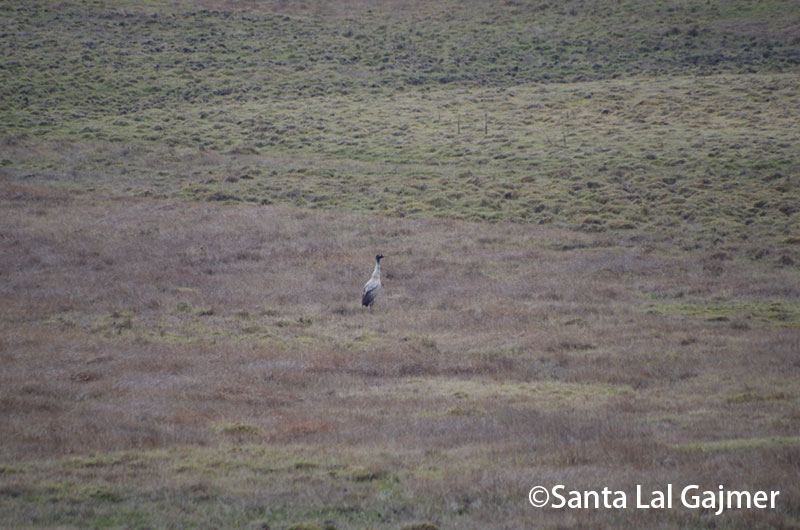
One left juvenile of the Black-necked Cranes
Spring is the season when nature awakens after the long winter gap. But for Phobjikha, the dawn of spring also carries with it a certain degree of sadness. It is the season whereby the heavenly and majestic birds, the Black-necked Cranes (BNC) leave the valley. Records show that the first cranes arrive in Bhutan in late October and the first group migrate to the north by the end of February. While the Cranes is in Bhutan, they forage in natural wetlands and harvested fields. A total of 626, including 77 juveniles, BNCs were sighted in Bhutan this year, of which 504 were recorded in Phobjikha valley. The first group of BNC, around 50 individuals, left the valley on 27 February, 2018, to their summer/breeding habitats. Only one juvenile crane was spotted in Phobjikha valley in the last week of March.

Our Last Three Months
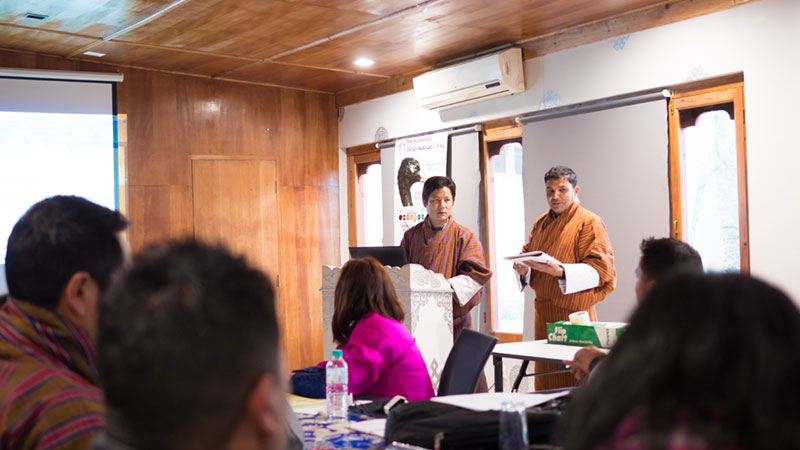
Teachers doing presentation of the findings
from the Need Assessment Workshop
During the past months, we have been improving and developing the Environmental Educational reference materials (EE materials) and have selected other materials as well.
A needs assessment workshop with the teachers was conducted in early March, 2018 to understand whether the selected EE materials was applicable for the Grade 4-10 students. During the two-day content validation workshop, nine teachers from Paro and Thimphu districts apart from validating the applicability of the selected materials, thoroughly reviewed the contents of three books. The comments and feedbacks received are being integrated.
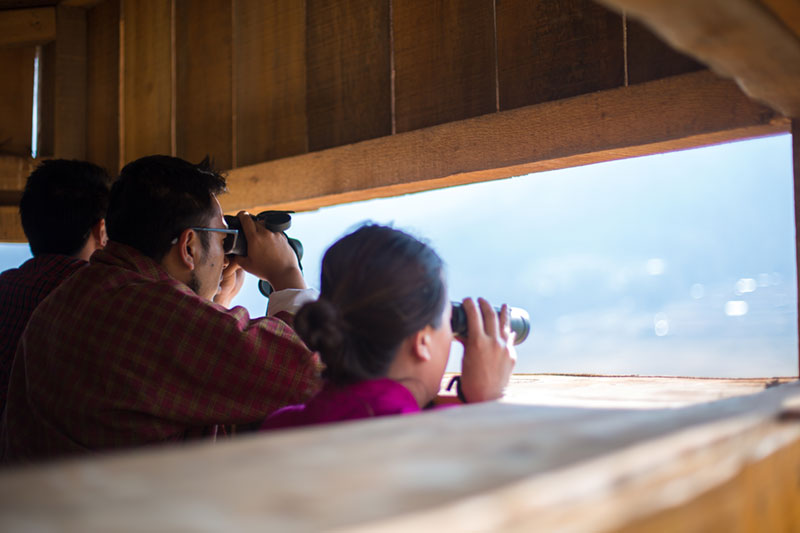
Team RSPN looking over the wetland to spot the crane
We have also been visiting the site, Phobjikha valley on 18 March, 2018, mainly to film the content for the documentary to raise public awareness on the co-existence between the Black-necked Cranes, wetland and the local community. While we were able to get most of the required footages like videos of the cranes and the wetlands, we still plan to visit Phobjikha during spring season to capture the valley in its best scenic time. Through the visits, we were able to interview residents and students to ask their feelings for the Black-necked Cranes and the serenity of the environment surrounding the valley.
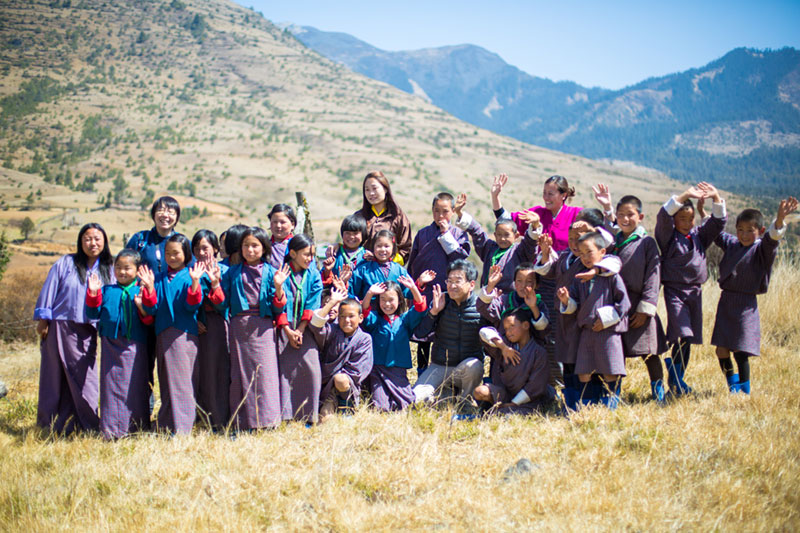
SATO YAMA UMI Project officers from Japan with the nature club members
of Ramachen Community Primary School
At the end of March, 2018, Officers in charge of the SATO YAMA UMI Project from Japan visited RSPN office. We discussed about the project and visited the project site. The visit was a fruitful one and provided the opportunity for us to understand the project well.

Our Next Three Months
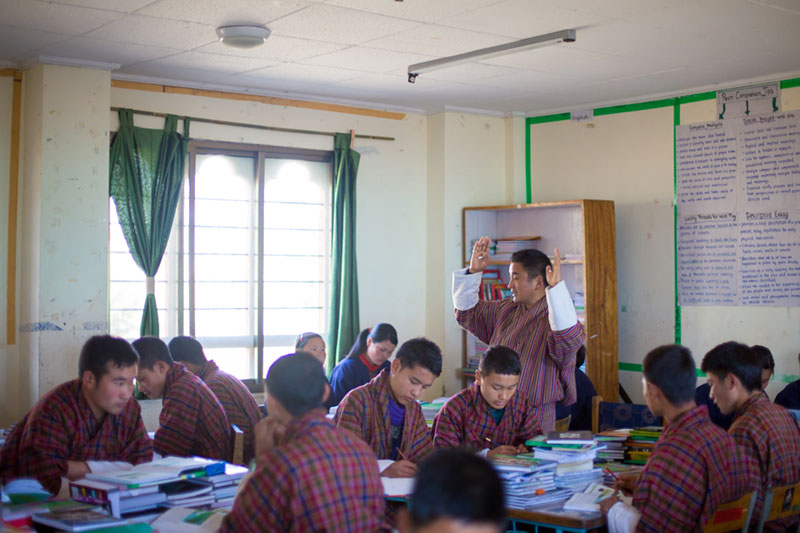
During an environmental science class at the Phobjikha Central School
For the next three months, we will focus on the development of EE materials and hopefully, we will be able to produce the first draft copy for the majority of the identified materials. Further, we will be carrying out other activities such as conducting meeting with the teachers for finalizing on the EE materials.
Our team will also work on completing the filming of the documentary and translating the interviews and narration for the video. We are also hoping that the draft video will be completed by May.
